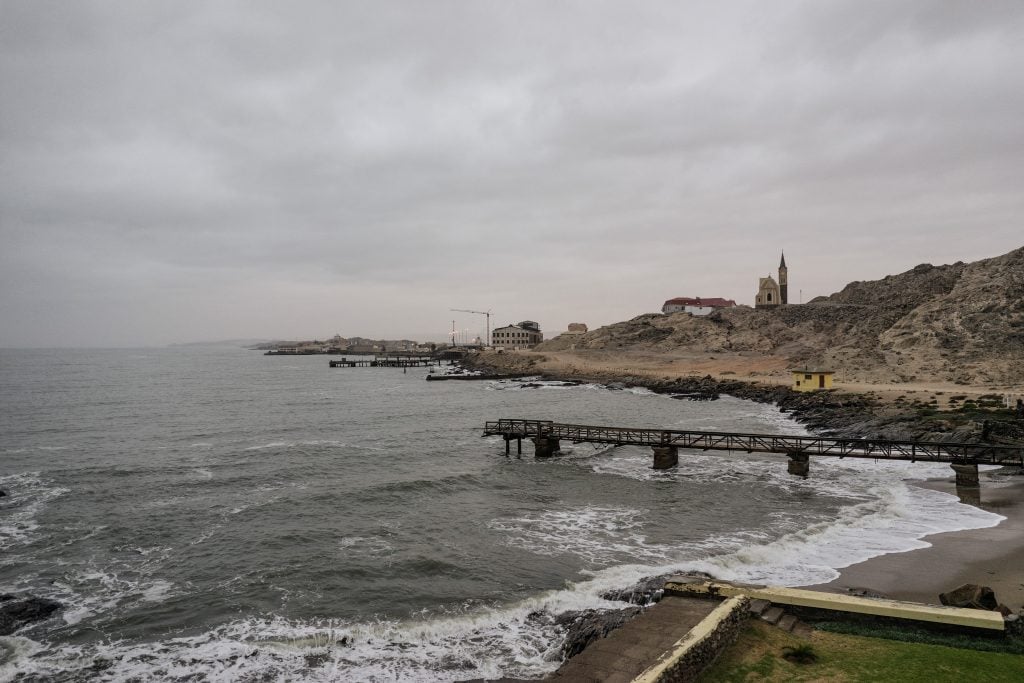Huge oil discoveries in the deep coastal waters off Namibia over the last two years are generating a wave of energy investor interest in the country’s hydrocarbon reserves – the recent finds potentially turning it into one of Africa’s top petroleum producers in the coming years.
With an estimated 11 billion barrels of oil reserves confirmed so far, the southern African state could be on the brink of a potentially transformative energy bonanza, since oil prices are currently high and likely to remain so for the foreseeable future. Initial discoveries could double the size of the country’s economy by 2040, with oil production set to start by 2030. But can Namibia avoid the ‘resource curse’ that has plagued other hydrocarbon-rich African countries?
With its considerable mineral and metal wealth, Namibia has acquired some extractive industry expertise over the years. Yet the unprecedented scale of investor interest in hydrocarbons means the country now needs to move quickly to develop the bureaucratic capacity and institutional knowledge necessary to meet the demands of increasingly sophisticated oil and gas investors.
Although Namibia gained independence from South Africa over 30 years ago, its institutions and administrative processes remain relatively weak. Many of the laws governing the extractive industries were drawn up in the 90s and are – bluntly – inadequate, particularly in comparison with regional neighbours that have strengthened their regulatory frameworks in recent years (take Angola as an example).
In practice this means a few different things: a lack of bureaucratic structure often causes delays, but it also means that investors are confronted with a variety of regulatory and operational risks when carrying out routine business activities, ranging from negotiating licences to finding local partners.
Until recently, Namibia’s licensing and procurement framework for oil and gas assets was based on closed-door, direct negotiations. As well as raising transparency concerns, the system has proved unable to deal with the influx of investors applying to lease oil blocks or secure production-sharing contracts. This has led to a backlog, prompting the authorities in January to try to streamline the process, amid calls for the creation of an independent upstream regulator.
These challenges aside, investors face other, very practical obstacles. The registration process for a local subsidiary can be very protracted, involving a lot of back and forth with BIPA, Namibia’s often chaotic corporate registry. Records there are also not as transparent or as up to date as they should be, leaving investors uncertain about the identity and the integrity of potential, statutorily-required local partners. More generally, foreign companies are struggling to find partners of the right calibre, with appropriate levels of experience.
This was always going to be a challenge given such a sudden surge in demand. But there are already signs that some of those offering their services as local partners have more political connections than they do relevant oil and gas experience. And it’s always a potential red flag when those firms are being recommended or promoted by local officials.
Encouragingly, there are signs that Namibian authorities recognise some of these issues and are trying to address them. They don’t have to look far to see how not to do it: to the north of Namibia, the likes of Angola and Nigeria continue to pay a hefty cost in terms of corruption and mismanagement, stemming in large part from the historical absence of appropriate controls and effective processes. Namibians are eager to avoid the same fate.
But the world has changed from the one Angola and Nigeria faced at the peak of investor interest in those countries nearly three decades ago. Most of the companies queuing up to do business in Namibia now are sophisticated, risk-averse energy businesses with strict anti-corruption policies and procedures. They have non-negotiable demands for transparency and accountability. And if Namibia wants to become a major energy player, it will not only have to make it easier to do business there, but also reassure investors that they can invest safely.
There are signs that Namibia is moving in the right direction. The government is reportedly applying to join the Extractive Industries Transparency Initiative – which requires members to disclose the details of contracts and licenses. This comes amid local efforts to promote beneficial ownership transparency and corruption risk management in public bodies. The moves are a statement of intent from the authorities, but they’ll need to move further and faster if they are to ride the wave of investor interest.

